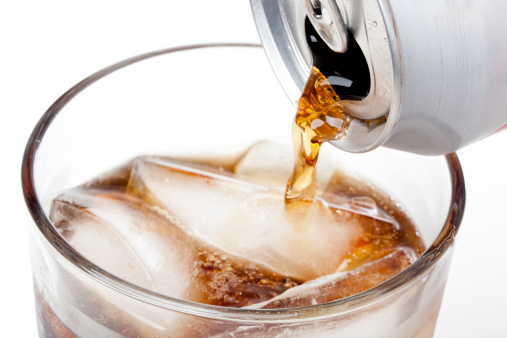 A new study found that people who consume diet beverages (i.e. diet soda) may compensate for the fewer calories in their drinks by eating extra food with high amounts of fat, cholesterol, sodium, and sugar. The research was recently published on the online version of the Journal of the Academy of Nutrition and Dietetics.
A new study found that people who consume diet beverages (i.e. diet soda) may compensate for the fewer calories in their drinks by eating extra food with high amounts of fat, cholesterol, sodium, and sugar. The research was recently published on the online version of the Journal of the Academy of Nutrition and Dietetics.
University of Illinois kinesiology and community health professor Ruopeng An observed the dietary habits of 22,513 adults who participated in the National Health and Nutrition Examination Survey between 2003 to 2012. Study participants were asked to remember what they ate and drank for two straight days.
An compared the daily calorie intake of the participants, including their consumption of discretionary foods and five different beverages: sugar-enriched drinks like fruit drinks and sodas, diet or sugar-free drinks, tea, coffee, and alcohol. An then compiled a list of 661 discretionary foods using the U.S. Department of Agriculture (USDA) food database. These discretionary foods consisted of poor quality foods void of nutrients, including fries, chocolate, ice cream, cookies, and pastries.
An found that over 90% of study participants consumed discretionary foods every day, which averaged around 482 calories daily. Approximately 97% of the participants consumed at least one of the five drinks per day, and 41% consumed a minimum of two of the drinks. Over 25% consumed three or more of the drinks each day. Of the five drinks, coffee was the drink of choice for 53% of the participants, followed by 43% for sugary drinks, 26% for tea, 22% for alcohol, and diet drinks at 21%.
Alcohol had the greatest daily calories at 384, followed by sugary drinks at 226, coffee at 108, diet drinks at 69, and tea with 64 calories.
“It may be that people who consume diet beverages feel justified in eating more, so they reach for a muffin or a bag of chips. Or perhaps, in order to feel satisfied, they feel compelled to eat more of these high-calorie foods,” explained An. He also said that people may decide to consume diet drinks because they feel guilty about their unhealthy food choices.
An also suggested that a holistic approach be taken by public health interventions. He encourages that consumers assess their beverage choice by their overall effect on the body.
Sources for Today’s Article:
Ruopeng, A., “Beverage Consumption in Relation to Discretionary Food Intake and Diet Quality among US Adults, 2003 to 2012,” Journal of the Academy of Nutrition and Dietetics, published online Sept. 11, 2015, doi: 10.1016/j.jand.2015.08.009.
“Diet beverage drinkers compensate by eating unhealthy food, study finds,” ScienceDaily web site, Sept. 11, 2015; http://www.sciencedaily.com/releases/2015/09/150911094912.htm.
